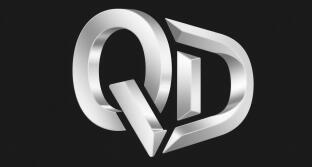QD is an expert in lost wax casting. Provide high-precision, custom casting solutions for clients across various industries.

The Importance of Investment Casting
Investment casting is a near-net-shape precision casting process. It can produce parts with complex shapes, high dimensional accuracy, and excellent surface finish. It requires virtually no subsequent machining. This overcomes the shortcomings of conventional casting, including limited precision and adaptability. It is also adaptable to a wide range of materials, from non-ferrous metals to high-temperature alloys. It is widely used in various industrial fields and specialized industries. QD possesses mature investment casting technology and fully controls the entire process. Delivering high-quality, highly adaptable investment castings.
Industry applications of investment casting

Auto Parts Industry
The automotive industry places stringent demands on component precision and reliability. Investment casting is a core process.
Engine systems: turbocharger impellers, valves, cylinder heads, etc.
They must operate stably under high temperature and high pressure. By firing the mold shell at high temperature, investment casting can fully mold the complex curved surfaces of the blades, ensuring efficient airflow.
Transmission and chassis components: high-performance gears, differential housings, etc.
Investment casting can create detailed tooth shapes in a single pass. Reducing subsequent processing. The bearing strength of the casting is 15% higher than that of conventional castings.

Shipbuilding Industry
Ship components are exposed to humid and corrosive environments for extended periods of time. This places extremely high demands on casting performance. Investment casting offers outstanding advantages in material adaptability (such as stainless steel and copper alloys) and sealing properties.
Ship propulsion components: engine turbochargers, fuel injector nozzles, etc.
Require seawater corrosion resistance. Lost wax casting enables the formation of complex oil channels in a single step.
Marine engineering equipment: Precision connectors for deep-sea probes, impellers for seawater desalination equipment, etc.
Require corrosion resistance and a compact structure. Investment casting reduces assembly gaps.

Medical Industry
Medical device parts come into direct contact with the human body or require high-precision operation. Therefore, castings must balance precision, cleanliness, and biocompatibility.
Implantable Medical Devices
- Artificial joints: such as hip and knee joints. The material must be biocompatible, and titanium alloy castings must meet biocompatibility standards after treatment. They must precisely match the human skeleton. Surface smoothness reduces tissue irritation.
- Dental implants, denture frameworks, etc. Investment casting can reproduce complex tooth shapes and connection structures.
Surgical instruments: scalpel handles, orthopedic surgical nail plates, etc.
These are small and complex structures, and investment casting ensures detailed integrity.

Food Industry
Food equipment must meet hygiene standards. Castings must be easy to clean and corrosion-resistant.
Mixing equipment: Food mixing equipment impellers, etc.
The surface must be smooth and free of buildup. Investment casting uses 304 stainless steel to create curved surfaces and rounded corners in a single pass. The surface is free of pinholes and complies with FDA standards.
Filling equipment: Beverage filling valve accessories, etc.
Precise flow control is required. The clearance between the valve core and valve seat in investment castings must be ≤0.02mm. It must also be resistant to acid and alkali corrosion.

Aerospace Industry
Aerospace components strive for “lightweight, high strength, and high precision.” Investment casting is a key guarantee.
Engine Components:
- Turbine blades, etc. These components must withstand temperatures exceeding 1000°C. High-temperature alloys such as nickel-based alloys are used for casting. Complex internal cooling channels can be formed in one step using the investment casting process.
- Special connectors, etc. Thin-walled. Special-shaped structures require high strength and lightweight. Investment casting can be formed using multi-layer shell technology. Castings can be 20% lighter than machined parts.
Aerospace structural components: satellite brackets, etc.
Investment casting reduces material waste while ensuring mechanical properties.

Jewelry Industry
Jewelry designs are becoming increasingly complex. Investment casting enables intricate shapes.
Jewelry: rings, necklaces, pendants, etc.
Investment casting uses high-precision 3D printing of wax models. Precisely reproduces complex patterns and hollow structures. The surface finish is superb. Extensive polishing is unnecessary. Precious metal utilization exceeds 95%.
Arts and Crafts: Metal sculptures, medallions, etc.
Can be mass-produced or custom-made. Preserves the designer’s fine textures and three-dimensional shapes.
Why Choose QD?
Choose QD. You’ll receive professional support and customized services throughout the entire investment casting process. QD has 20 years of experience in investment casting. We have multiple fully automated production lines. Equipped with imported testing equipment. Annual production capacity: 5 million pieces. Each batch of castings undergoes 12 rigorous inspections. We offer free proofing and a one-year quality assurance service. We provide you with worry-free customized solutions. If you have any questions, please contact QD.

FAQ
1. My product has a complex structure, thin walls, or unusual shapes. Is investment casting suitable for it?
Yes. The core advantage of investment casting is its ability to precisely form complex structures, thin walls, or unusual shapes without requiring extensive post-processing.
2. Can the quality and precision of investment castings meet industrial-grade requirements?
Absolutely. QD investment castings achieve a dimensional accuracy of ±0.05mm. Surface roughness Ra ≤ 1.6μm. Properties such as strength and sealing meet stringent industrial standards.
3. What materials are supported by lost wax casting? Can you recommend suitable materials based on my industry needs?
Stainless steel, high-temperature alloys, titanium alloys, aluminum alloys, and other materials are supported. The QD technical team will recommend the optimal material solution based on your industry needs.
4. Is there a significant cost difference between a small-batch trial run and large-scale production? Does mass production save costs?
There is a difference. The larger the batch size, the lower the unit cost. Small-batch trial runs primarily cover mold and process debugging costs. In large-scale production, optimizing wax pattern reuse and shell material ratios can reduce material waste costs by 10%-15%.
5. If the castings I receive have quality issues, is there any after-sales service?
Yes. QD offers a one-year warranty. Quality issues not caused by human error can be repaired or remade free of charge. Quality inspection reports are provided throughout the entire cooperation process.
